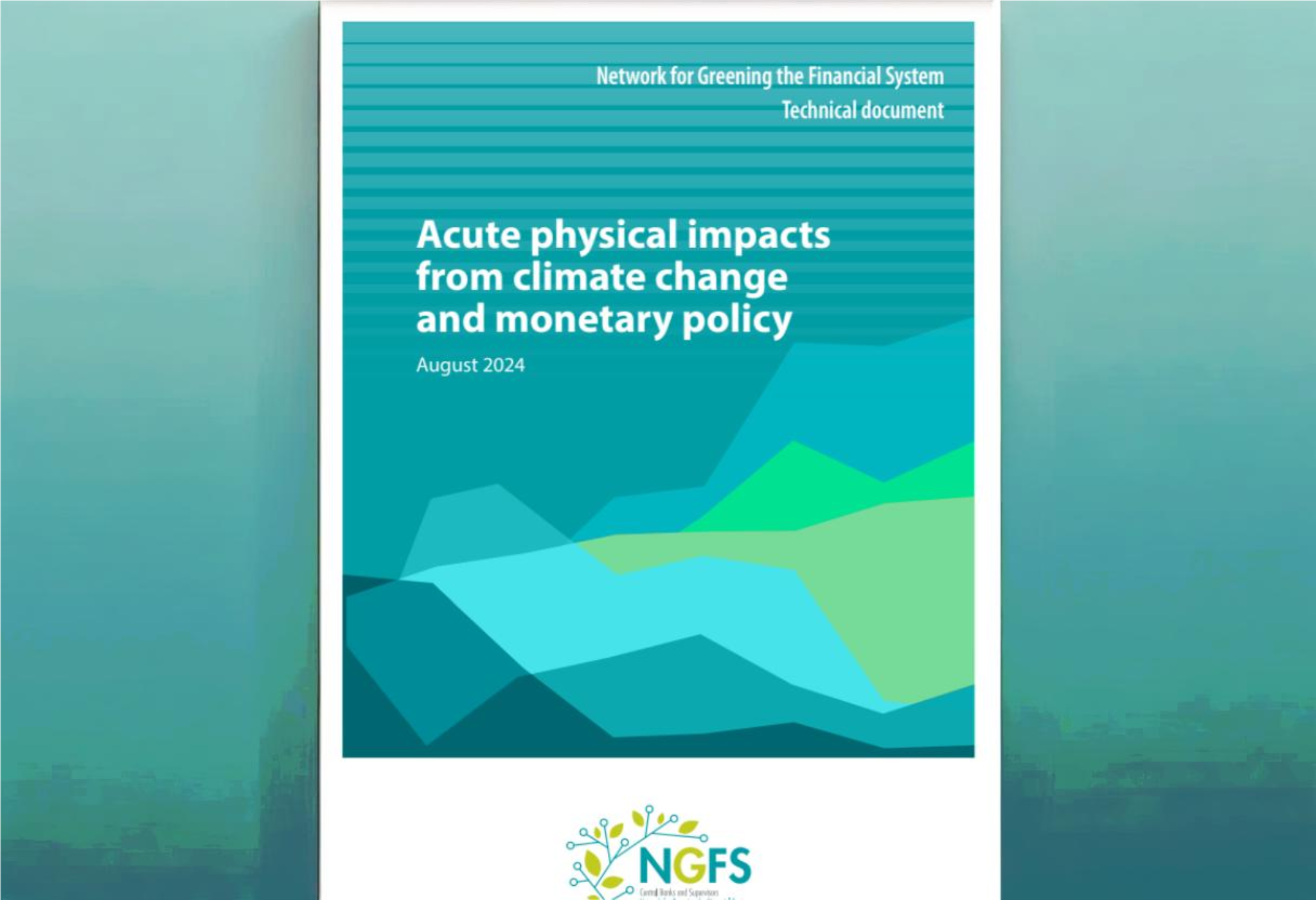The Network for Greening the Financial System (NGFS) released its report, “Acute Physical Impacts from Climate Change and Monetary Policy,” designed to offer central banks a systematic understanding of how physical climate hazards affect the macroeconomy and provide initial insights into their potential implications for monetary policy.
With global temperatures rising and expected to hit new peaks in the coming years, extreme weather events have become both more frequent and severe. According to the NGFS 2023 membership survey, about 75% of central banks indicated that their economies had already experienced damages from acute climate events over the past decade. The annual global costs from weather-related hazards have more than doubled in real terms over the past two decades, reaching $275 billion in 2022.
Climate change’s physical effects will impact both the demand and supply sides of the economy, with additional amplification through financial channels. From a monetary policy perspective, these extreme weather events will influence output and inflation in both the short and long term, potentially creating trade-offs that policymakers must manage while pursuing price stability.
Sabine Mauderer, Chair of the NGFS and Member of the Executive Board of the Deutsche Bundesbank said, “Climate change is intensifying the frequency and severity of natural disasters, such as severe droughts, floods and storms. These events inflict massive damage on communities and infrastructure, with serious implications for economic activity and prices, of food in particular. This affects the core tasks of central banks.”
Mauderer added, “The report delves into the transmission channels through which the physical impacts of climate change affect the economy and financial system. It provides central banks with a comprehensive framework to prepare for and respond to the acute impacts of climate change, enabling them to fulfil their mandates in the face of these unprecedented challenges.”
The report outlines how the acute physical impacts of climate change propagate through the economy and presents a framework to help central banks assess their implications for key macroeconomic variables relevant to monetary policy.
James Talbot, Chair of the NGFS Workstream on Monetary Policy and Executive Director of the International Directorate at the Bank of England said, “Central banks have typically treated the macroeconomic impacts of extreme weather events as transitory supply shocks, looking through their impact on output and inflation when setting monetary policy. However, with these events expected to become more frequent and severe around the world, more persistent macroeconomic effects are likely to follow, via both domestic and international spillover channels, making them harder for central banks to look through. This report provides central banks with the foundation on which the macroeconomic impacts of acute physical impacts can be understood, paving the way for future work to focus on the possible implications for monetary policy.”
This publication is the first in a series by the NGFS, focusing on climate change and monetary policy. Following this initial report on physical impacts, future reports will cover the effects of the green transition on the macroeconomy and how central banks are approaching climate change modeling.
